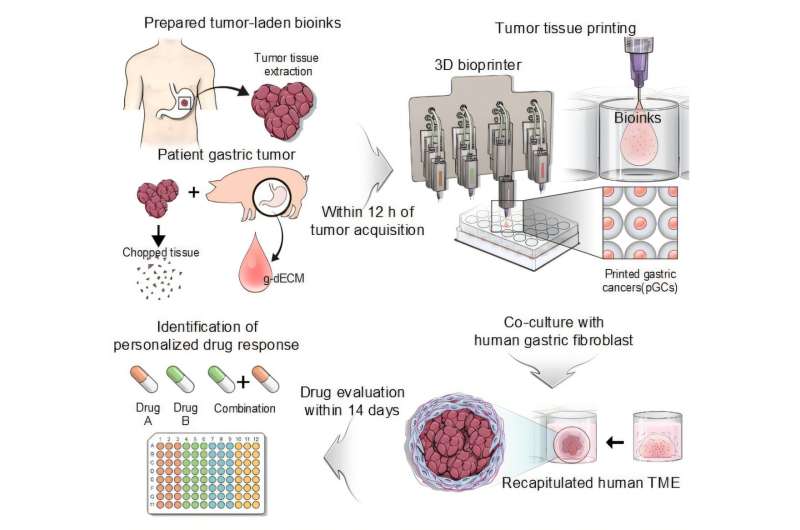Tumor heterogeneity poses a significant challenge in the development and treatment of cancer therapies, as patient responses to the same drug varies, and the timing of treatment is a critical factor influencing prognosis. Therefore, technologies that predict the efficacy of anticancer treatments play a vital role in minimizing side effects and enhancing treatment efficiency.
Existing approaches, such as gene panel-based tests and patient-derived xenograft (PDX) models, are limited in their applicability to certain patients, have constraints in predicting drug effects, and require substantial time and costs to establish.
In this study, the research team developed an in vitro gastric cancer model by leveraging 3D bioprinting technology and tissue-specific bioink incorporating patient-derived tissue fragments.

